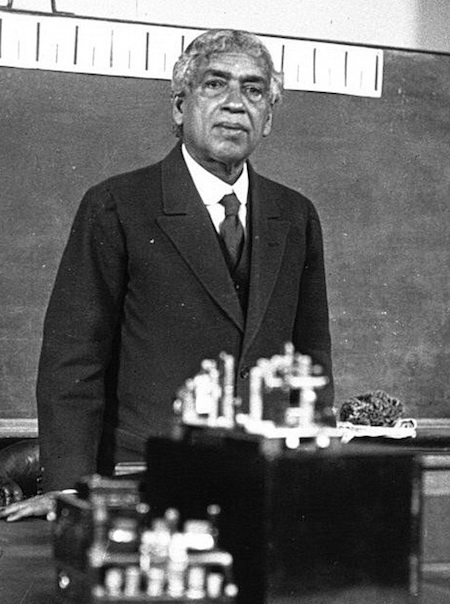Jagadish Chandra Bose | 20 Apr 2023
Why in News?
Researchers from Tel Aviv University have discovered that plants make distinct, high-pitched sounds in the ultrasonic range when faced with stress, such as needing water.
- This discovery is seen as a logical extension of the work of Indian scientist Jagadish Chandra Bose, who demonstrated that plants could experience sensations and feel pleasure and pain, highlighting the continued relevance of his work in modern science.
What is Bose's most Significant Contribution to the Study of Plants?
- Bose demonstrated that plants could feel pleasure and pain, just like animals.
- He used his skills as a physicist to build sensitive instruments that could detect even the weakest signals from plants.
- He studied the biology of plant movements, feelings, and the nervous system. He is credited with using the word "feelings" to describe the way that plants react to touch, although some scientists argue that this is a matter of semantics.
Who was Jagdish Chandra Bose?
- About:
- Born on 30th November 1858 to Bama Sundari Bose and Bhagawan Chandra, Bengal.
- He was a Plant Physiologist and physicist who invented the crescograph, a device for measuring the growth of plants. He for the first time demonstrated that plants have feelings.
- Education:
- He earned a BSc from University College London, which was connected with the University of London in 1883, and a BA (Natural Sciences Tripos) from the University of Cambridge in 1884.
- Scientific Contribution:
- He was a biologist, physicist, botanist and an early writer of science fiction.
- Bose discovered wireless communication and was named the Father of Radio Science by the Institute of Electrical and Electronics Engineering.
- Bose is widely believed to be the first one to generate electromagnetic signals in the microwave range.
- He was responsible for the expansion of experimental science in India.
- Bose is considered the father of Bengali science fiction. A crater on the moon has been named in his honour.
- He founded Bose Institute, a premier research institute of India and also one of its oldest. Established in 1917, the Institute was the first interdisciplinary research centre in Asia.
- Books:
- His books include Response in the Living and Non-Living (1902) and The Nervous Mechanism of Plants (1926).
- Death:
- He died on 23rd November 1937 in Giridih, Bihar.

